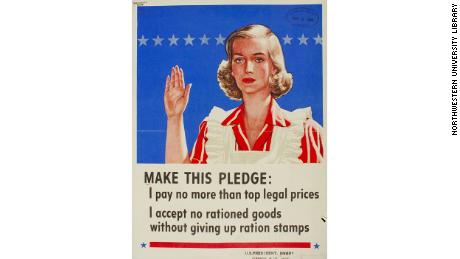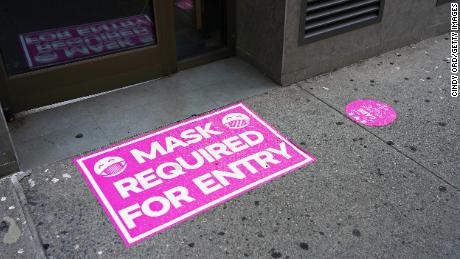Such widespread opposition to necessary public health measures is cause for alarm. But much of that alarm has been combined with a sort of hectoring nostalgia, handwringing over an America that no longer seems willing to suffer for the good of others. “This generation of Americans has trouble with the concept of sacrifice,”
wrote Deseret News columnist Jay Evensen as he implored people to keep their gatherings small. He worried that too many of the Americans who survived the Depression and World War II had passed, and with them, the spirit of selflessness. “We could use their wisdom right now, as well as their memories of ration books, chocolate shortages and having to drive on bald tires because rubber was needed for the war effort.”
That same call for the sacrificial spirit of the Greatest Generation has
echoed across the
media landscape, as both a rallying cry and a censure: urging Americans to sacrifice to save lives and
deploring how selfish we have become. Yet this appeal to the past misunderstands just how reluctant Americans in the 1940s were to abide by the new restrictions of the wartime economy. Understanding today’s self-centered, rule-breaking, comfort-craving Americans in accurate relation with our past matters, because it reveals that the problems we’re facing now reflect a failure not of American spirit but of American leadership.
During World War II, Americans dealt with government rationing for the first time. World War I had relied on voluntary restrictions. Meatless Tuesdays and Wheatless Wednesdays encouraged Americans to conserve supplies but did not require them to do so. But in the 1940s, volunteerism was not enough, and soon shoppers
needed ration coupons to acquire meat, sugar, gasoline and other basic goods.
That is, if they were playing by the rules. But not everyone was eager to sacrifice. A bustling black market emerged, so robust that
an estimated 20% of meat ended up there. Even the legal market was flooded with counterfeit and stolen ration coupons, or coupons used improperly. Hoarding, too, was common, as households with the right resources and connections stocked up whenever goods like butter and sugar could be found. What was true for groceries was true for gasoline: A reporter for Collier’s Magazine
drove across the country without ever dipping into his fuel rations, so easy was it to get bootleg gas.
Government officials in charge of rationing were well aware that many Americans wouldn’t play by the rules, and so early on decided not to go after individual scofflaws, focusing on black-market suppliers instead.


World War II poster
It wasn’t just goods that Americans were unwilling to sacrifice during the war — it was comfort, too. In New York City, officials asked residents and office buildings in certain areas to dim their lights after dark to protect ships off the coast, which were threatened by nearby German submarines. (The light created a “shore glow” that made it possible to see the ships’ silhouettes, leaving them exposed.) But New Yorkers were reluctant to voluntarily sacrifice their evening light. It took
an Army order to finally get residents to comply.
Holidays sharpened the sense of deprivation and the desire to stop sacrificing, at least for a day. Early signs that Thanksgiving would be particularly contested emerged during the Depression in 1939, when President Franklin Roosevelt, hoping to give the economy a much-needed boost,
moved Thanksgiving up a week to extend the Christmas shopping season. Americans revolted. Republicans derided the change as “Franksgiving” and only half the states acknowledged the new date, rejecting what they saw as government intrusion on a sacrosanct tradition.


A ‘mask required for entry’ sign is displayed at the entry to a retail store on August 23, 2020 in New York City.
Little did they suspect that within a few years, the war would dramatically remake Thanksgiving, making traditions both more desirable and more difficult to sustain. “No turkey today for the first time in our lives,” a writer for the Boston Globe mourned in 1942. “No grandmas, either, which is a lot worse, but one hasn’t any gas and the other is too patriotic to travel unless necessary.” Turkeys were often too scarce to acquire legally; butter and sugar rations so tight that pumpkin pie was out of reach. Roosevelt attempted to knit this into a story of service to the nation in his
1943 Thanksgiving declaration, in which he underscored “a high resolve on the part of all to produce and save food and to ‘share and play square’ with food.” But for many Americans, these were not voluntary sacrifices; they were driven by scarcity more than goodwill.
That’s not a knock on Americans during World War II but rather a recognition that personal sacrifice for community benefit is incredibly difficult. Americans sacrificed during the war, as they do today, for a wide range of reasons: altruism, food shortages, poverty, regulations, social pressure. The sort of sacrifices Americans made during WWII were, as often as not, mandatory and resented. They required not just laws but extensive propaganda campaigns, severe social sanctions, and regular exhortations that a little sacrifice on the homefront would save countless lives on the frontlines.
We can empathize with those Americans who yearned for creature comforts and chafed against restrictions, who felt they had already sacrificed so much for dangers that seemed so abstract or far away. And we can envy them, too, because while they weren’t naturally braver or more restrained or altruistic, they had something Americans today do not: a clear message about common good and shared goals. Instead we have a President who stopped governing weeks ago, a Republican Senate who refuses to move on relief legislation and a presidential health adviser who, when asked about Thanksgiving, shrugged and said, essentially,
party like it’s your last Thanksgiving ever.
The crisis, it turns out, is not the selfishness of this generation of Americans. It’s the selfishness of the administration and its allies in Congress, a moral and political weakness that has already cost hundreds of thousands of lives, and will cost many thousands more before the year is through.
![]()








